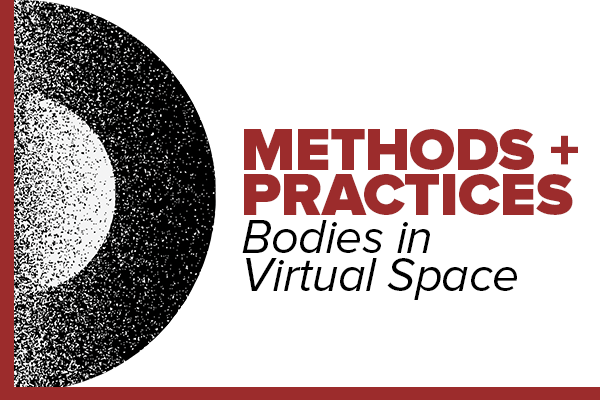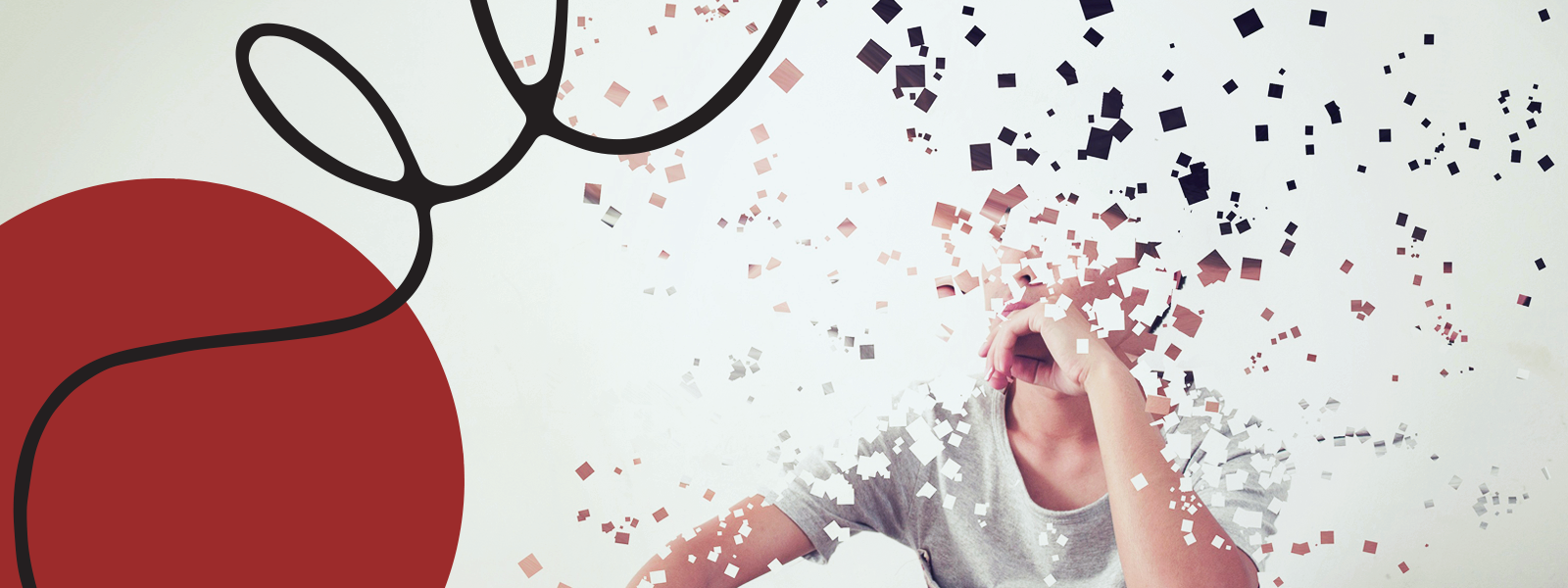

Bodies in Virtual Space:
Bridging Distance in Arts and Humanities Methods and Practices
A GAHDT METHODS CONVERSATION
Moderators
Dorry Noyes,GAHDT faculty fellow and professor, Departments of English and Comparative Studies
Susan Van Pelt Petry, GAHDT faculty fellow and professor, Department of Dance
—This event will have live transcription—
Many foundational arts and humanities practices rely on corporeal copresence — or have done so until now. The performing arts require temporal coordination and gestural intercommunication among participants. In the humanities, interviewing and other listening methods traditionally rely on interpersonal copresence to energize interaction and facilitate the building of rapport and common ground across social divides.
Participant observation requires the researcher to ask permission to enter the everyday spaces of the community or activity being studied, playing by their rules. Similarly, community engagement presumes in most cases that scholars will leave their academic spaces and interact with communities on their turf or in shared public space. To be sure, a growing number of communities and activities live partially or wholly in virtual space. But the digital divide as well as traditional preferences mean that, for many vulnerable communities, meaningful social interaction is felt to depend on physical copresence, and social trust must also be cultivated face to face. In the extreme case of incarceration, physical copresence is not voluntary and there is a very limited availability of other options.
What happens, then, with the COVID-19 interruption? All of us face new practical and conceptual challenges. Visual and performing artists, who often rely on physical acts in the world, often with collaborators in analog space and time, must find new or different ways to trust materiality, to perceive detail and to interrogate through imagined senses. Researchers face both the disruption of the practices they study and the disruption of their own methods. Ordinary participant observation becomes impossible, while in other ways screen contact may foster more immediate intimacies with individuals across physical and social distance. The interruption of live and co-present practices, whether highly valued or taken for granted, may also foster new kinds of reflection and practice by social actors, and thus new sources of data for researchers. Community engagement projects must reshape themselves according to new priorities and constraints within the communities.
Beyond the bemoaning of the obviously disembodied screen, inequities of access and other real and obdurate barriers, we hope to ask what is possibly gained and what shifts in baseline assumptions and presumptions can be altered or upended in order to maximize deep work.
Format
- 12:45 p.m. Meet and greet setting up Zoom room
- 1 p.m. Formal program begins
- 1:15-2 p.m. Presentations
Participants will briefly address these questions in relation to their GAHDT projects: How have you adapted your methods or practices involving bodies to virtual space? What is lost, gained, maintained, changed — what are the effects of the transposition? What questions does this experience raise for thinking about the body in methods and practices, and more immediately for our work going forward? - 2-2:15 p.m. Follow-up comments from presenters
- 2:15-2:50 p.m. Moderated discussion
- 2:50-3 p.m. Wrap-up
Presenters
-
Jacklyn Brickman | GAHDT graduate fellow, Department of Art
Brickman will share her experience with presenting a visual art experience online and share some modes of translation for collaborative interactive installations. -
Trevor Marcho | GAHDT graduate fellow, School of Music
Marcho will discuss Drumming Over a Distance: Through Drumming for Wellness, an initiative for people living with Parkinson's disease to strengthen bonds with their caregivers and families through group music-making, finding new ways to interact with each other, working with musical time and space as we all practice social-distancing. -
Susan Melsop | GAHDT faculty fellow, Department of Design
Melsop will discuss leveraging emerging technology for ethically driven, compassionately practiced remote community engagement. Inspired by the social technology of Theory U, Melsop's presentation integrates immersive technology of virtual reality with participatory design (action research) to foster co-creation and social empowerment. -
Ryann Patrus | Graduate student, Department of Comparative Studies
Maurice Stevens | Professor, Department of Comparative Studies
Patrus and Stevens will be talking about their experience hosting a virtual workshop called “Transformations in Access and Pedagogy” as part of the Society for Disability Studies conference in spring 2020. As we know, the question of ‘accessibility’ was very much front and center this past semester when so many faculty and students all across the country were forced by circumstances to shift to teaching in/on online platforms. The presenters will discuss some of the ways they shifted in response, having to hold the workshop on Zoom, but also about shifts they did not make. That is, they will also talk about how engagement with transformative access pedagogy already had these concerns and more embedded within it (in part, because of the centrality of questions of technological access, mobility, vulnerability, access intimacy, etc. to disabled bodyminds that were only then becoming concerns shared by folks less marginalized by educational institutions and conventional practices). -
Jasper Waugh-Quasebarth | GAHDT postdoctoral fellow, Ohio Field School - Center for Folklore Studies
Waugh-Quasebarth will be representing the Center for Folklore Studies, and the Ohio Field School and Sharing Visions initiatives. As both projects involve significant face-to-face interaction as a core principle, they will speak to how collaborative methodologies can root such projects in equitable relationships that can continue to grow trust and collaborative design through digital spaces.
